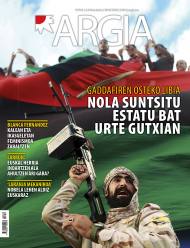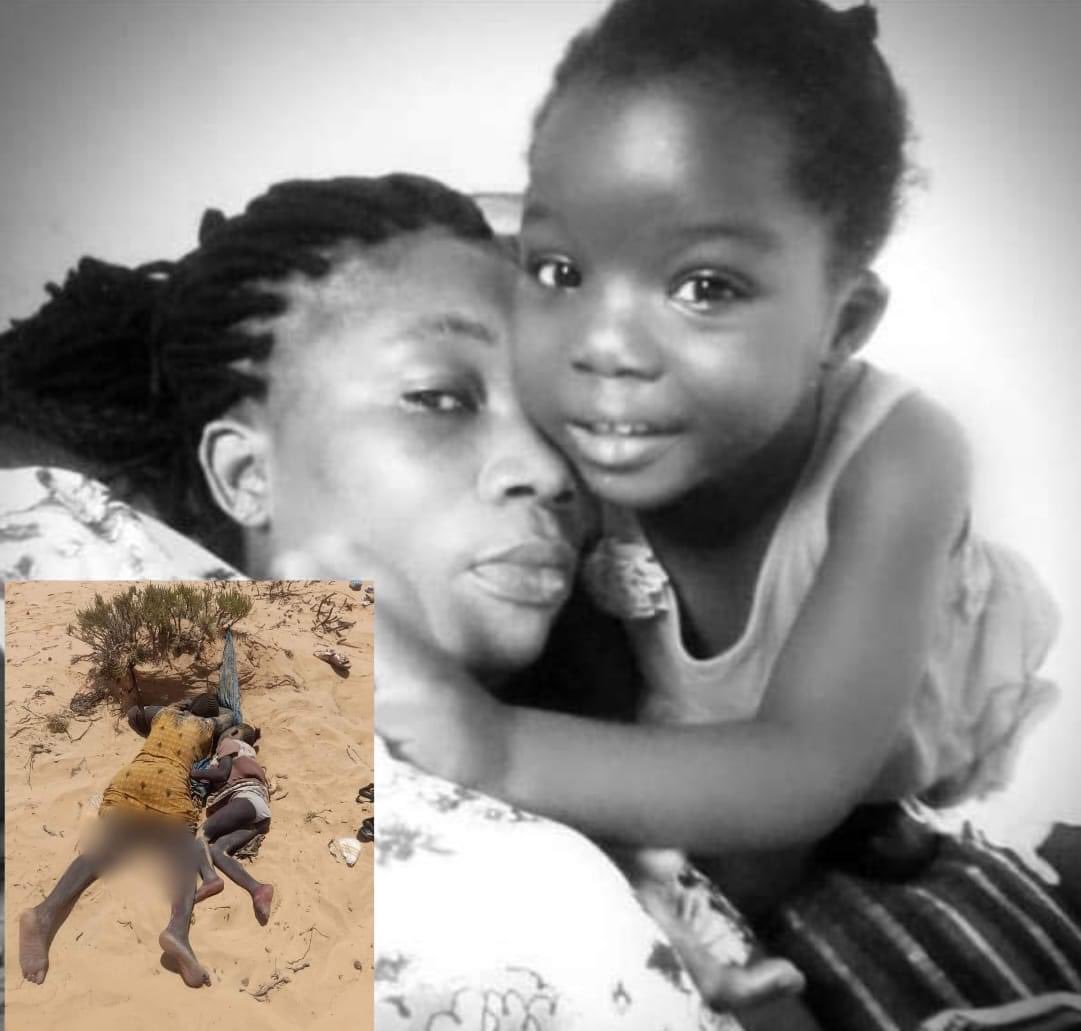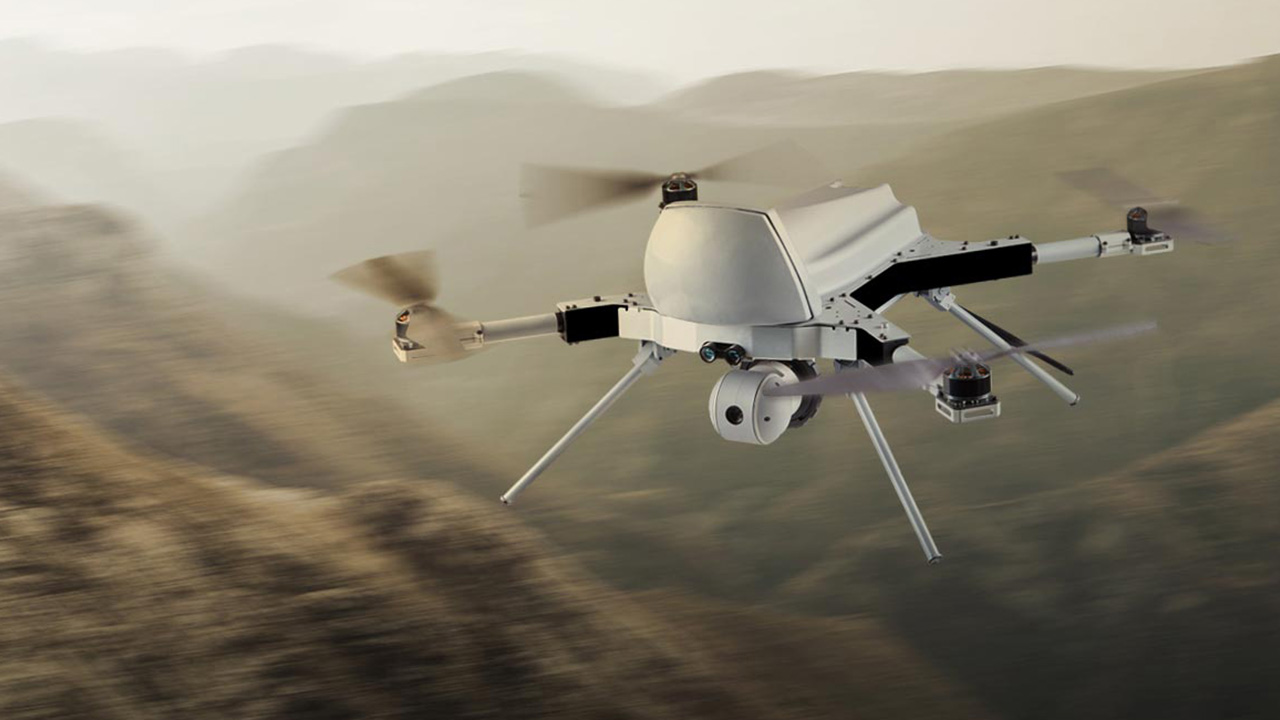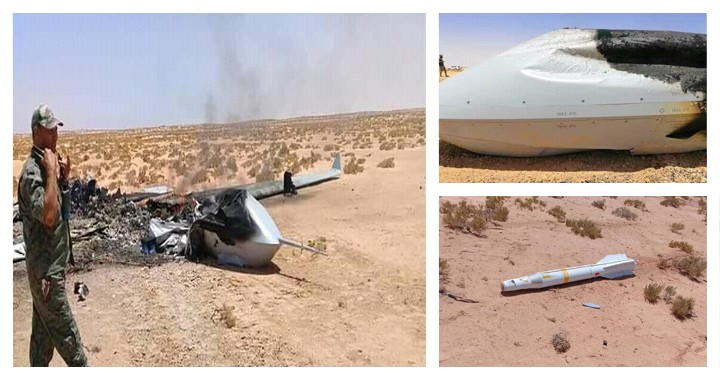Lost house
- Seven years after the end of the civil war, the situation in Libya is very serious. The Libyans have lost not only the state, but also the people.

Neither Tunisia, nor Egypt nor Syria took so many hours in the 2011 news reports. At the Prime Time, we saw the country that remained closed for many years split in half: A crowd of rebels like Mad Max shouted “God is the greatest”; across the trench, a comic book villain. It was fun for television.
The first slappies of reality were received immediately after the fall of Tripoli: the shakes of the blacks, all of them “mercenaries of Gaddafi”, or of the followers of Gaddafi. Nor can we forget the NATO bombings. The official affirmation of that supposed revolution was gathered in the appearance that should represent the end of the war: the first measure that the new government would analyze was the one that regulated polygamy. At the time of Gaddafi it was legal, but her husband needed a permit signed by his wife to be able to marry for the second time. The head of the Transitional Government, Mahmud Jibril, clarified the measure: from then on, his wife ' s consent would not be necessary in order to bring home a second or a third party. The new ruler of the new Libya threw the "pearl" from the balcony of the red castle of Tripoli, before mentioning the reconstruction of the country or civil society. Within a few days we saw, almost live, the wild lynching of Gaddafi. And that's how the war in Libya ended on television.
In 2012, the first general elections were held in Libya, with a result of 35.5 million. Unlike Egypt or Tunisia, the Islamists were not the owners; there was still some hope. Unfortunately, the old Entelechia had already become a city in Libya, and only occasionally did images come as confusing as disorderly: The US Consulate in Benghazi in 2012, the Tripoli Airport in 2014, the capital of the Libyan caliphate burning in 2016… All of them, and the southern Sahara. A bunch. If you are happy to know that Libya is the last stop of migrants and refugees arriving in Europe, you can leave the reading here.
From the national state, the stateless nation
was held in 2014 the second elections of the country, but by then the people were already desperate and only 18% of the census voted. The United Nations recognized the process full of irregularities, but the Libyan authority was divided into two parts: In Tripoli, in the west, a government was formed and in the east, in the city of Tobruk, another government was formed. Turkey and Qatar supported the Tripoli; the United Arab Emirates, Egypt, France and Saudi Arabia stood next to Tobruk, as well as former followers of Gaddafi. The United Nations intervention poisoned the environment.
The Guardian filtered some emails in the fall of 2015. In one of them, the UN mediator for Libya, Bernardino León, proposed to the Foreign Minister of the United Arab Emirates a path to “delegitimize” the Government of Tripoli. In another email, León sent her concern: Because of the weapons that the Emirate was sending to Libya – the UN arms embargo was still in force – Leon found no way to justify it to his colleagues. Instead of carrying out the task of brokering his post, León worked for a single government. The Spanish rencor of the tripolos was evident. When these evil purposes were spread, the diplomat headed to Dubai. He is currently the head of the Diplomatic School in the area and has a salary of 50,000 euros a month, entitled The Guardian dixit.
The complicit silence of the international press, on the one hand, and the 2015 Paris attack, on the other, concealed and eliminated the “Leongate” case. As if it were not enough, the plan put in place by Spanish was maintained: In March 2016, the new Prime Minister’s Executive, Tripolin Fayez al Serraj, the third in the Libyan Government, landed. They came by the sea and settled in an old military base. This time no elections were convened, but, in spite of that, the United Nations considered it the “only legitimate government” of Libya. In order to survive in Tripoli, Serraj organized a powerful salafist militia called Rada, who was employed. In one of his latest actions, several organizers of the Tripoli Comic Fair were arrested for “weakening religion and conveying fascination for foreign traditions.” In addition to buying the militias of all Islamist groups, the great mafias of human trafficking took refuge under the umbrella of the new government. From the latter, the present Libyan coastguards have emerged.
That of Tobruk is the main enemy of the UN-sponsored government. The organisation that brings together the followers of Gaddafi, France, Saudi Arabia and the bellows of Russia, is also the home of General Khalifa Haftar. After helping Gaddafi reach the Government, the military moved to the United States, where he remained in detention. He was in Virginia for twenty years, and during that time he was recruited by the cia. As the new leaders promised, Haftar joined the 2011 uprising, which was defeated by Obama. When he returned to his homeland, he was given the title of “Head General of the Libyan Army”. Haftar has met several times with Russian Foreign Minister Sergey Lavrov and has a personal friend, Egyptian President and General Abdelfatah Al-Sisi. That is why it has been said many times that it is possible to see the solution for Libya “to the Egyptian”, the coup d’état.
Those who are not fans of the Game of Thrones series should read the last two paragraphs two or three times. A successful fiction is probably the simplest way to understand the process of the disappearance of the Libyan State.

A people, eleven tribes, trying to avoid the
identity crisis created by the defeat of the State, the Libyans have taken refuge in tribalism. According to the Libyan historian Faraj Njem, there are 140 tribes in Libya and networks of alliances spread throughout the Maghreb. It is true that in urban areas such as Tripoli its strength is lower, but many families are displaced from outside to the capital. Basically, in your house it can be a small weight variable, but you know that the neighbor doesn't live like that. Sectarian keys between Shi'a and Sunni in Iraq and Syria do not help to understand the situation. Libya is much more complex. Since the creation of the country, the Italians have had to seek a tribal balance that allows them to govern; so did the Italians (1911-1943), King Idris (1951-1969) and Gaddafi (1969-2011). The big problem is that now everyone is armed.
In September 2016, at an event held in Geneva, the then UN Head for Libya, Martin Kobler, gave a significant and worrying piece of information: In Libya there were about 26 million weapons, more than four per inhabitant, and in Libya there were 2,300.
It is difficult to say whether the phenomenon of tribalism is compatible with national sentiment, but it cannot be denied that there is a great sign of identity in Libya. In addition, these are not monolithic narratives: In post-Gaddafi Libya, new elements such as “Islam”, “revolution” or “Arab nation” can easily be integrated into the ideas of clans. Kemal Abdalla, one of the largest experts in Libya, claims that tribes are "agents of problems and solutions." According to the investigator, clan interactions are based on solid alliances, proof of this is the map made in 1955 by French General Pierre Rondot. The document is so concrete that it contains a network of alliances that it has lasted to date. This map could easily intuit the rupture between Tripoli and Tobruk, which was created in 2014.
.JPG)
The daily nightmare in Libya,
in addition to insecurity, is also a case of economic suffocation. The Libyan dinar, which in 2011 was at par with the euro, can now get eight dinars per euro on the black market. There is no liquid capital in banks and, in order to deal with the corralito, each government has taken a number of measures that have increased inflation, such as printing money. In 2017, the new Government of Tripoli used funds from the United Kingdom, while Tobruk contributed funds from Russia. They were the same banknotes, and only the director of the Libyan Central Bank changed his signature, which is different in the east and west of the country. In this way, the East banknotes were not accepted in the West and vice versa.
The fall in the economy is, however, more serious than expected. Since the 1960s, oil has been the only industry in Libya. Under the command of King Idris, the government became the main employer, which rooted Rentism in the country's economic model. Gaddafi purged that completely corrupt structure and introduced its people, but keeping the same development model at the same time. Libya has the largest oil reserves in Africa and a small population that does not reach the six million, which is precisely the secret of the “economic miracle” Libyan. According to official (pre-war) data, 85 per cent of Libya ' s employees are in the public sector. Despite the fact that recent tourists have disappeared some time ago, there are still many tour guides who pay the salary each month. In any case, the rail sector is certainly the most significant case of unworthy rentism. The 800 workers of the Libyan National Railway Agency have everything: headquarters, uniforms, corporate leaflets... They just lack the train.
Real infrastructures are not much better. The continuing clashes have seriously hampered their reconstruction. On the one hand, and on the other, the flight of foreign investors, the country cannot overcome the crisis and start to grow economically. Over the past seven years, eleven groups have taken over oil ports and refineries to get their profits or cut off those of others. The same is true of the essential electricity supply for the industry. The transport network is also beginning to disappear: militias permanently block roads without maintenance and the main airport in Libya, Tripoli, was destroyed in 2014. Today a military airport of the capital is being used instead, to which the factions are constantly attacking him. The most basic water supply has not prevented the catastrophe. The Great Artificial River, built for the exploitation of water in subsoil aquifers, has become an instrument of pressure from all groups. The way to oppose one of the governments is very simple: in the southern desert they close the tap and often leave the coast without water. No water.
.jpg)
Libyans “others”: Amazians and Tubus
Are we buds in the fog? In his book (Pamiela, 2010), Joseba Sarrionandia notes that the Maghreb states are “the berophobes”, “Algeria and Morocco, which have large masses of Amazig in particular”. In Libya we referred to a much smaller number – around 10% of the population – but the prisons in Gaddafi were filled with Amazon political prisoners. Due to Gaddafi’s “cultural revolution” in 1973, he banned and destroyed any specimen that did not match his green paper. The word Amazig literally means “free man,” but to the chief president they were merely “sons of Satan,” or “the mere instrument of colonialism to divide Libya.” Thus, Amazig’s adherence to the uprising did not surprise anyone in 2011.
Despite the opposition, the Amazon decided in August 2011 to break its relations with the Islamic State of Iraq. In the words of his then leader, Fathi Ben Khalifa, “this is a battle between the Arab nationalists and the Islamists, and neither of them has expressed their intention to accept us.” The Amazon Superior Council began its work in September 2011. His first demand was a linguistic claim. At the same time, the first popular councils were set up, with Zuara (Amazon coastal enclave) being the first people of Libya to democratically elect the consistory.
Tuarega is one of the non-Arab peoples. Although they have not yet joined, their relations with the Amazians are becoming ever closer. After all, they have a common language, and many of them claim that only the “desert Amazians” are Tuaregs. The Tumours are the neighbours of the latter in southern Libya, and the borders of Chad and Niger also divide the arid Tumal territory (the driest area of Africa). This sub-Saharan people suffered violent repression during the four decades that Gaddafi was in power: it took off the best lands (oasis) and gave the former rulers to the Arab settlers; it left them without school and without hospitals and, on several occasions, Gaddafi bombarded his humble peoples from the air. The Tubu Supreme Council is its main organization today and has agreed on a common agenda with the Amazon.
Hamabost bat metroko luzeerako txalupan 280 migratzaile zeuden, eta Aita Mari ontziak erreskatean parte hartu du. Italiako Lampedusa uhartetik gertu zegoen txalupa, noraezean, eta itsaso mugitua zegoenez, Italiako kostazainen hiru ontzik gauzatu dute erreskatea; Lampedusan... [+]
Joan den martxoan drone batek autonomoki egin die eraso gudari humanoei, Nazio Batuen Erakundeak iragarri duenez. Libiako gerra zibilean gertatu da, Tripoliko gobernuak darabiltzan robot turkiarrek hainbat soldadu arerio hil eta gainerakoak ihes egitera behartu dituztenean... [+]
Libian zerutik bonbak erortzen direnean, hasten da nork jaurti dituen asmatzeko jokoa. Han esku hartzen duten atzerriko bost estatuetatik edonor izan daiteke arduraduna, edo Libiako bi gobernu lehiakideen bi aire armadetako bat. Sarri hauetako batek ere bere gain hartzen du,... [+]
























